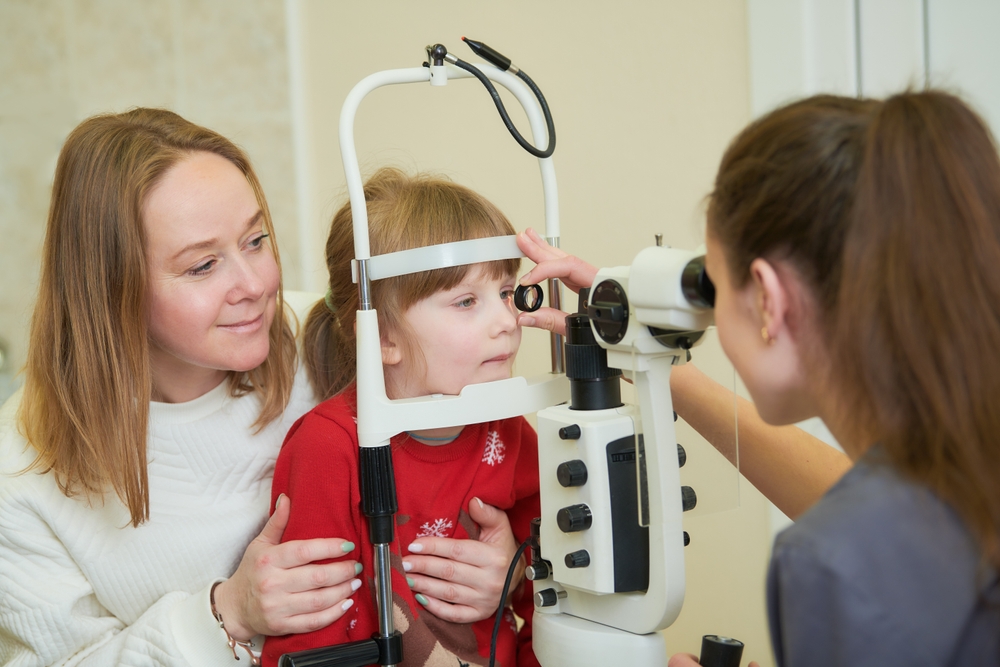
Why Kids Need Regular Eye Exams
Your child's vision is a critical component of their overall health and development. While many parents focus on their child's physical and dental health, vision often gets overlooked. However, ensuring your child receives regular eye exams is just as important. Vision problems can significantly impact a child's learning, behavior, and quality of life if left undiagnosed and untreated.
Common Eye Conditions that Kids Can Experience
Children can experience a variety of eye conditions that, if left untreated, can lead to long-term vision problems and developmental delays. Some of the most common eye conditions in children include:
• Refractive Errors: This includes nearsightedness (myopia), farsightedness (hyperopia), and astigmatism, which can cause blurred vision and difficulty focusing.
• Amblyopia (Lazy Eye): This condition occurs when one eye develops poorer vision than the other, often due to a refractive error or misalignment of the eyes (strabismus).
• Strabismus: Also known as crossed or wandering eyes, this condition occurs when the eyes do not align properly, causing double vision or depth perception issues.
Early detection and treatment of these conditions are crucial for preventing long-term vision problems and ensuring your child's optimal visual development.
How Vision Problems Affect Learning and Development
Vision plays a critical role in a child's learning and overall development. When vision problems go undetected or untreated, they can have a significant impact on a child's academic performance, behavior, and quality of life. Some of the ways vision problems can affect a child include:
· Difficulty Reading and Writing: Refractive errors, such as nearsightedness or astigmatism, can make it challenging for a child to focus on text or see the board clearly in the classroom.
· Poor Hand-Eye Coordination: Vision issues can impair a child's ability to accurately judge distances and perceive depth, which can hinder their physical development and participation in sports or other activities.
· Behavioral and Attention Problems: Undiagnosed vision problems can lead to frustration, fatigue, and difficulty concentrating, which can be mistaken for behavioral or attention-deficit disorders.
· Social and Emotional Challenges: Vision problems can cause a child to feel self-conscious, withdrawn, or isolated, impacting their social and emotional well-being.
By addressing vision problems early on through regular eye exams and appropriate treatment, you can help your child overcome these challenges and reach their full academic and developmental potential.
The Importance of Regular Pediatric Eye Exams
Regular pediatric eye exams are crucial for the early detection and treatment of vision problems in children. The American Optometric Association (AOA) recommends that children have their first comprehensive eye exam at 6 months of age, followed by additional exams at 3 years old, 5 years old, and then annually thereafter.
These comprehensive eye exams go beyond the basic vision screenings often conducted at schools or pediatrician's offices. During a pediatric eye exam, an optometrist will:
· Assess your child's overall eye health and visual development
· Identify any refractive errors or other vision problems
· Determine the appropriate treatment, such as prescription lenses, or other interventions
· Monitor your child's vision as they grow and develop
By addressing issues like amblyopia, strabismus, or refractive errors during the critical early years, you can help your child avoid long-term vision problems and the associated challenges in learning and development.
Recognizing Signs of Vision Problems in Children
As a parent, it's important to be aware of the signs and symptoms that may indicate a vision problem in your child. Some common indicators to look out for include:
· Frequent eye rubbing or blinking
· Complaints of headaches or eye strain
· Difficulty concentrating or paying attention
· Tilting or turning the head to see better
· Covering or closing one eye to see more clearly
· Avoiding activities that require close-up vision, such as reading or drawing
· Difficulty with hand-eye coordination or sports
· Frequent loss of place when reading
· Frequent eye infections or irritation
If you notice any of these signs in your child, it's important to schedule a comprehensive eye exam with your optometrist as soon as possible. Early intervention is key to addressing vision problems and ensuring your child's optimal visual development and overall well-being.
Schedule Your Child’s Eye Exam with Ciotti Eye Care Today
Your child's vision is a critical component of their overall health and development. By ensuring they receive regular pediatric eye exams, you can help detect and address vision problems early, setting them up for success in school, sports, and all areas of their life.
At Ciotti Eye Care, we are dedicated to providing comprehensive eye care for children of all ages. Visit our office in Riverview, Florida, or call (813) 212-7400 to schedule an appointment today to prioritize your child's vision and set them up for a bright future.




